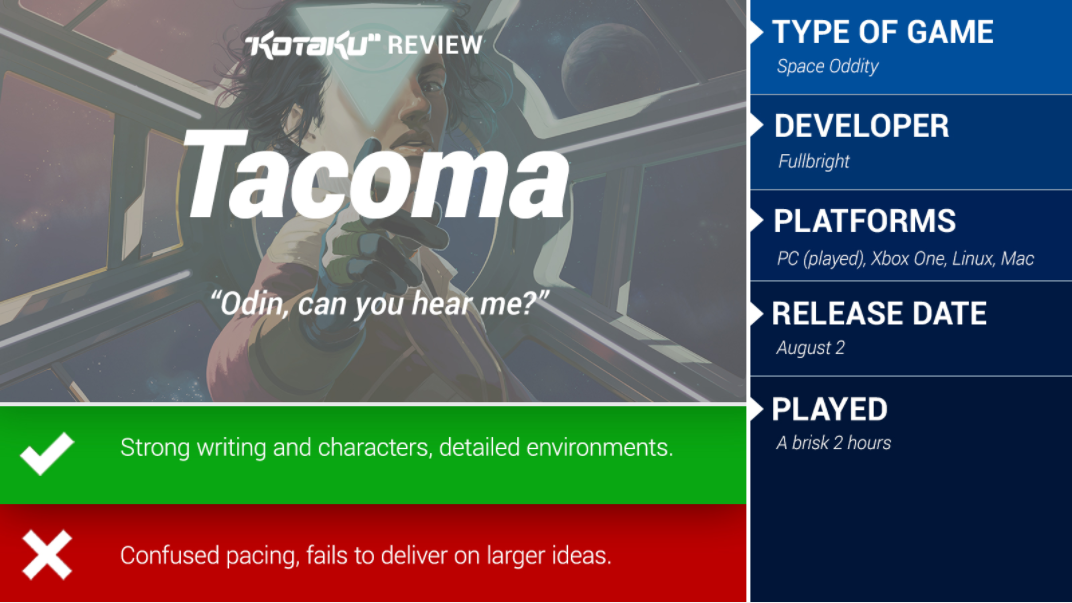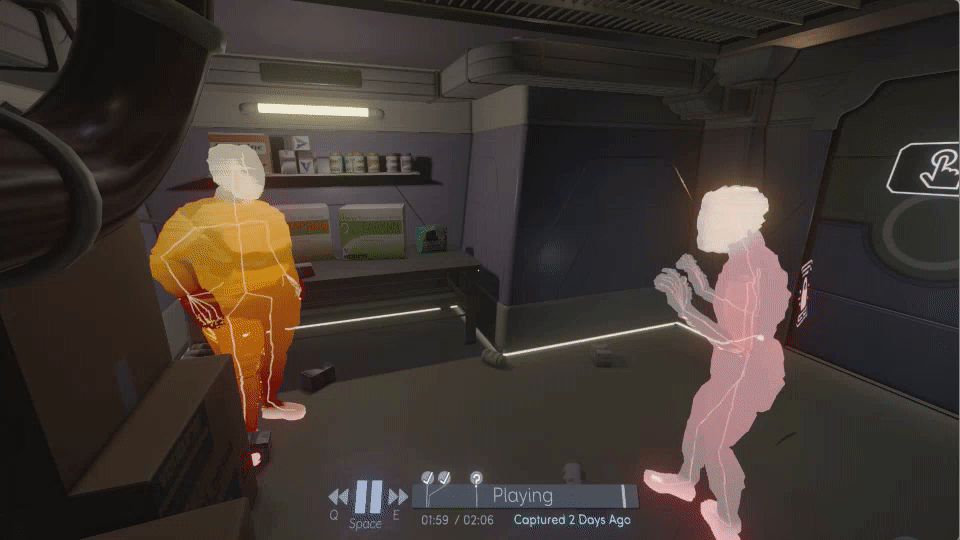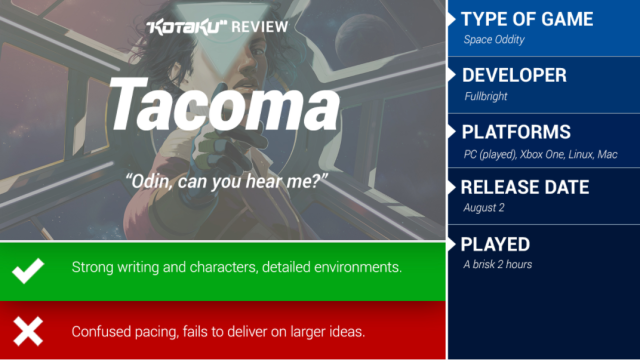Tacoma is a narrative game about chasing ghosts. Set in the future aboard a large space station, players search for answers in augmented reality recordings of past events. The digital remnants of the station’s crew steal romantic moments, play video games and strum guitars. These shadows are all too human, and observing them is a haunting and captivating experience.
Developer Fullbright’s last game was the 2013 adventure game Gone Home. It told the story of a lone family, expressed through journal entries and detailed environments. Tacoma builds upon this foundation with a complex space station to explore and intricate recordings to view. Players take the role of Amitjyoti “Amy” Ferrier, a pilot responding to a distress signal aboard the space station Tacoma. To discover what happened to the crew, Amy must view the world through augmented reality that brings past events to life in rich detail. Recordings leap from days before the accident that brought Amy to the station to years before the incident occurred.

In recreating the day to day life of the station’s crew, the recordings have parties together and play in zero gravity. Players might observe a brave medical officer giving advice to the crew only to follow her hologram to another room to find her in the throes of a panic attack. One character might engage in dialog with the station’s AI as another chats with the entity in a separate room. These highly-choreographed routines can be rewound, frozen, and observed from a variety of angles. As a result, Tacoma feels like the video game equivalent of promenade theatre piece Sleep No More, where audience members can choose to observe the larger picture or simply follow a single actor. The ability to observe Tacoma‘s characters in different contexts brings them to life. Players learn who the crew are in the dark and understand the various masks they wear in public.
Tacoma draws strength from this cast, a multi-ethnic and diverse group that points towards the same type of progressive future as Star Trek. It never comes off as overly optimistic or utopian. Gone Home‘s story of queer romance was empowering, but the characterisation felt more like an after-school special than a fully-realised story. Tacoma‘s diversity enhances the main narrative, showing a wide range of personal stories that are further complicated as the crew deals with a catastrophe. Small details mount to provide a clearer picture of the crew. A bottle of shampoo humanises the black station administrator’s struggle to put on a controlled, professional demeanour. A receipt for a body pillow and a pair of mounted deer antlers gives nuance to a queer couple’s personal interests. The crew of Tacoma is enhanced by their diversity, providing a compelling look at a future that feels speculative but grounded.

Tacoma‘s emotional content shines, but it struggles with larger themes and ideas. The game attempts to juggles questions of AI sentience, corporations and labour, and personal reactions to death. These concepts are explored in passing, colouring the dialog and game space with interesting hints of a larger world that is never satisfactorily explored. Late game twists bring some of these issues into focus, but the rest of the two to four hour experience opts to use the issues as set dressing, dropping the ball on opportunities for insightful commentary. Tacoma implies a world that is often more interesting than it presents.
Tacoma also has difficulty with pacing as well. Players are locked in each segment of the station while they download system data. It stymies progress as players are trapped in a location, watching the same story sequences multiple times over as they wait to be given the all clear. As a result, Tacoma can feel claustrophobic and controlling, corralling the player and denying them free rein to take in all of the station’s sights and sounds. In a game that leans heavily on player discovery and environmental storytelling, this works against the pensive mood its core themes convey.
Tacoma ultimately succeeds as a piece of emotional storytelling. Every moment spent with the crew is spellbinding, as their strengths and struggles play out in painful detail. The experience is sometimes frustrating, but Tacoma leaves a lasting impression.

Comments
One response to “Tacoma: The Kotaku Review”
I really enjoyed Gone Home, so I’ll pick this up if I get a spare moment to play it.